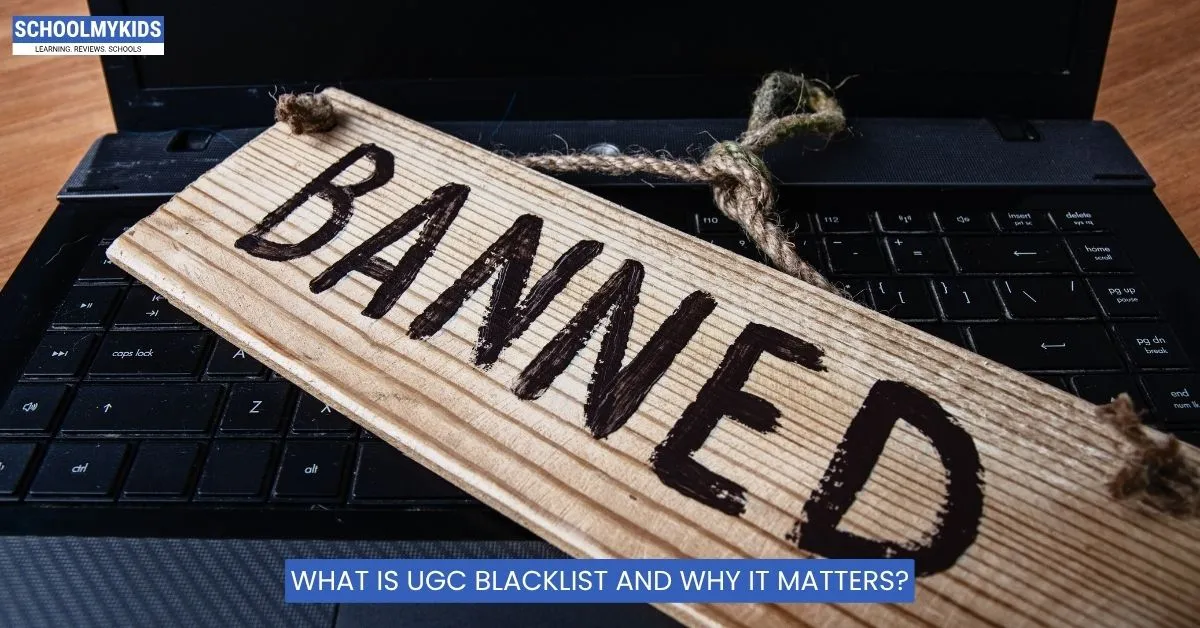In the intricate world of Indian higher education, the University Grants Commission (UGC) acts as the principal regulatory body, a watchdog tasked with maintaining the quality and integrity of universities. Among its many functions, one of the most critical for the public is the periodic publication of its "blacklist"—an official list of fake universities operating in the country.
This list is not just a routine notice; it is a crucial shield designed to protect millions of students and their families from the devastating impact of educational fraud. Understanding what this blacklist signifies and why it matters is essential for anyone navigating the college admission process in India.
Decoding the UGC Blacklist: What Is It Exactly?
A Public Warning Against Fake Universities
The UGC blacklist is an official, publicly available list of self-styled, unrecognised institutions that are illegally operating and presenting themselves as 'universities'. These entities are not established or empowered to grant degrees under Indian law, yet they often enrol students and issue worthless certificates under the guise of being a legitimate university. The UGC updates this list periodically to warn students against seeking admission in such fraudulent institutions.
The Legal Basis for the Blacklist
The UGC's authority to create and enforce this list comes directly from the UGC Act of 1956. Two sections are particularly important:
- Section 22: This section clearly specifies that the right to confer or grant degrees can only be exercised by a university established by a Central Act, a Provincial Act, or a State Act, or an institution specially empowered by an Act of Parliament.
- Section 23: This section prohibits any institution other than those established by law from using the word 'University' in its name.
Institutions on the blacklist are those that brazenly violate these fundamental provisions.
How to Access the Official List
The most up-to-date blacklist is always available on the official UGC website. Students and parents can access it by visiting ugc.ac.in and navigating to the "Universities" or "Public Notices" section, where a dedicated link for "Fake Universities" is provided.
Why the Blacklist Matters: The Real-World Consequences
The existence of the UGC blacklist is of paramount importance, with severe real-world consequences for those who ignore it.
For Students: A Career Dead-End
This is the most critical aspect. Enrolling in a blacklisted institution can be catastrophic for a student's future for several reasons:
- Worthless Degrees: A degree from a fake university holds zero value. It is not recognised for higher education in India or abroad, nor is it valid for any central or state government employment.
- Complete Loss of Time and Money: Students invest several precious years of their academic life and their parents' hard-earned money into a qualification that is ultimately useless.
- Legal Jeopardy: Knowingly using a fake degree for employment or other benefits can lead to legal prosecution for fraud.
For Parents: The Ultimate Due Diligence Tool
For parents, the UGC blacklist is the most reliable and essential due diligence tool. Before making a significant financial and emotional investment in a child's education, a quick check of this list can prevent them from falling prey to sophisticated scams that often use misleading advertisements and impressive-sounding names.
For the Government and Society: A Call to Action
The list serves as an official directive for state governments and law enforcement agencies. Once an institution is declared fake by the UGC, the chief secretaries and police departments of the respective states are empowered to initiate legal and penal action against them for defrauding students.
How to Protect Yourself: A Quick Verification Checklist
Being vigilant is simple and can save you from immense trouble. Follow these steps before taking admission anywhere:
- Check the Official UGC Website: The first and most important step is to visit ugc.ac.in and verify if the university is on the UGC's list of recognised universities.
- Cross-Reference the Blacklist: As a second step, always check the dedicated "Fake Universities" list on the same website.
- Be Wary of Misleading Names: Fraudulent institutions often use names that sound very similar to famous universities to create confusion. Double-check the exact name and location.
- Verify Technical Approvals: For technical courses like engineering or management, ensure the college and the specific course are also approved by the All India Council for Technical Education (AICTE).
Conclusion: Your Education, Your Responsibility
The UGC blacklist is a vital shield that protects the aspirations of millions from the clutches of educational fraud. It maintains the sanctity of the Indian degree and provides a clear warning sign for all to see. However, while the UGC provides the information, the ultimate responsibility lies with students and their parents. A few minutes spent on verification can prevent years of regret and secure a child's academic and professional future.









Be the first one to comment on this story.